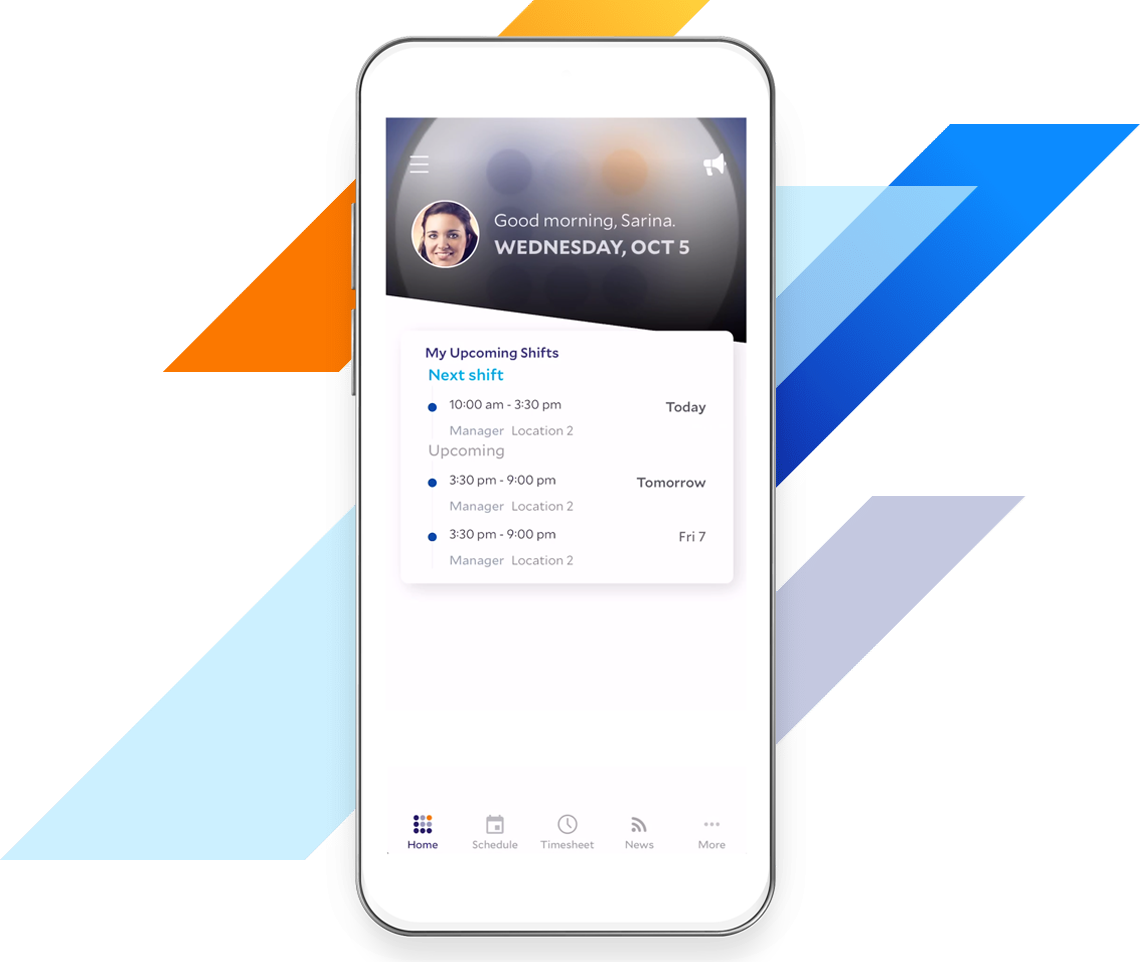Predictive Scheduling: Finding the Right Balance
May 22, 2024
by Carrie Bradfield

For years, retail and food service employers have been wrestling with the challenges of complying with predictive scheduling laws across the United States. These laws require businesses to provide advanced notice of scheduled shifts while limiting changes to those shifts to give workers more stability. However, businesses may often ask, how can I balance my organization’s changing needs alongside these stability requirements?
What is Predictive Scheduling?
Predictive Scheduling laws require employers to give workers advance notice of their work schedules. The specifics can vary by jurisdiction but generally include requirements such as posting work schedules two weeks in advance, providing rest between shifts, and compensating employees for last-minute schedule changes. The primary goal is to protect employees from the unpredictability and instability of erratic work hours.
Benefits of Predictive Scheduling
The benefits of predictive scheduling for employees are clear: It allows for better planning around personal responsibilities, such as childcare, education, or additional jobs. From an employer’s perspective, these regulations can enhance staff morale and reduce turnover, leading to a more engaged and productive workforce. Predictive scheduling can also promote a healthier work environment by reducing stress and fatigue associated with insufficient rest or disrupted sleep schedules from inconsistent scheduling.
Challenges and Compliance
To comply with these Predictive Scheduling laws, organizations typically need to update their scheduling practices and often the tools that support those practices. Using an automated scheduling system like Legion Workforce Management (WFM) can help with this process, automating the creation of schedules that consider employee availability and preferences alongside the business needs to create schedules that work for both parties upfront.
Predictive scheduling can reduce businesses’ flexibility to manage fluctuating demand. For instance, a restaurant might find it harder to adapt to unexpected changes in customer flow without incurring penalties for altering schedules at short notice. Organizations accustomed to on-call shifts will likely need to change their practices.
How Do We Strike the Right Balance?
Consider the impact of highly accurate forecasting processes like the AI-driven demand forecasting with Legion. When you can accurately predict demand in the upcoming weeks, taking into account the impact of weather impact and local events, you can have confidence that the schedule you publish two weeks in advance will meet your customers’ and employees’ needs.
On the opposite end of the spectrum, we can also consider empowering employees to make changes to their schedules themselves. When an employee requests a change to their schedule, it’s often exempt from additional penalty payments, as it’s already in the employee’s best interest to make that change. You can also empower your employees with shift swapping and shift offers so that they have more control over their schedules.
Key Elements for Scheduling Compliance
- Scheduling in Advance: Employers must adapt their scheduling processes to ensure that employees receive their schedules well in advance. Typically, this is at least two weeks before the work begins. Within Legion, this means setting up the advance notice period as required for each geographic area with schedule predictability laws in place, ensuring that managers see what their schedule publish windows are when working on schedules.
- Right to Rest: Some laws mandate a minimum rest period between shifts, often 11 hours, to prevent “clopenings” where an employee closes the business late at night only to open it early the following day. Employers need to plan and coordinate shifts to comply with these stipulations carefully. Using a platform like Legion means managers don’t have to worry about this planning challenge. Compliance settings ensure that the automatically generated schedule never includes “clopening” shifts and provide managers a heads-up in case they try to make a schedule change that would cause the situation to occur.
- Compensation for Changes: If an employer changes the schedule within the advanced notice period, they may be required to pay extra compensation. This rule is designed to discourage last-minute alterations unless absolutely necessary. Sometimes, last-minute changes are unavoidable, so organizations need to be prepared to capture the correct payments for changes and send them to their payroll system. Legion can automate payments for clopening violations and schedule changes within the change window.
- Record Keeping: Maintaining detailed records is crucial for compliance. This includes documenting when schedules are posted and any changes made, including the reasons for such adjustments and notices given to affected employees. Legion allows for a complete configuration of reason codes by geographic area, indicating whether an employee is entitled to compensation for changes under that reason. Employees can also be notified of changes to request their consent to the change in the schedule when it’s within the threshold for a schedule change window. These system capabilities help ensure organizations comply with all the required payments and records around schedule changes.
Best Practices for Employers
To successfully navigate Predictive Scheduling laws, businesses should consider several best practices:
- Invest in Technology: Utilizing robust scheduling software can simplify creating compliant schedules. A fully automated WFM platform like Legion is a great place to start for an easy way to ensure compliance and record keeping.
- Engage with Employees: Regular communication with employees about their scheduling preferences and any potential changes can help preempt issues related to compliance. Ensure your employees choose to use the apps that support your WFM platform–this engagement is the best way to ensure they get the schedules they want.
- Continuous Training: Regular training sessions for managerial staff on the nuances of Predictive Scheduling laws and best practices are essential. This ensures that everyone involved in scheduling knows the requirements and the consequences of non-compliance.
Predictive scheduling has already reshaped how businesses manage their workforces in some locations, and the trend continues in more places. It’s worth your time to figure out the best way to balance legal compliance and your business’s operational effectiveness.
Legion is the perfect tool to help your organization strike this balance. With Legion WFM, you can combine the science of AI-driven demand forecasting with your organization’s advanced labor model to precisely define the number of staff you need at any point during the upcoming scheduled weeks–even multiple weeks in advance, to allow for advance notice easily. Automated schedule generation considers all your staffing rules, including preventing clopening situations to ensure an employee’s right to rest. This up-front planning is backed up by the processes to help you manage when things don’t go according to the plan. Legion can capture every change that happens at the last minute and ensure that the employees are compensated correctly for anything that requires a penalty payment, providing the Predictive Scheduling laws are followed correctly without the manager having to consider it. To learn more about how Legion can help your organization, schedule a demo now.
